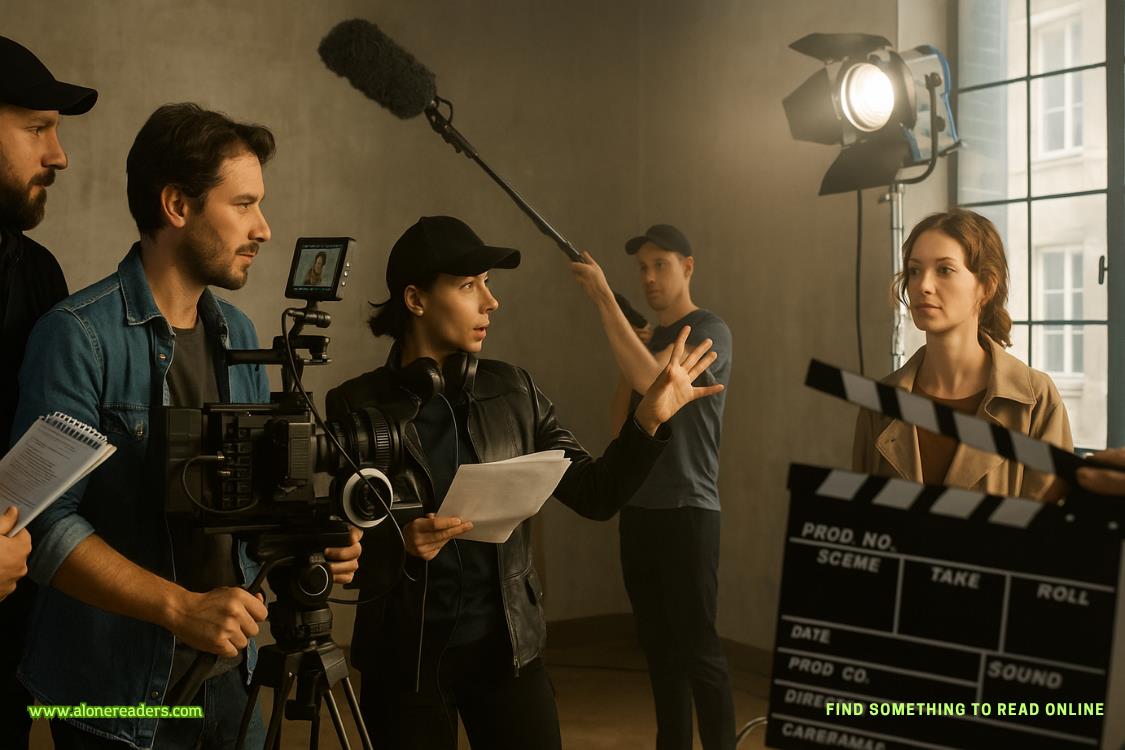Page 40 of You Owe Me
134 BPM. 141. 138.
Numbers. Just data points, blinking like a warning light I’ve been ignoring for too long. Still not the worst I’ve seen on this screen, but high enough to make the nurse pause. She doesn’t say much. Just narrows her eyes and taps her tablet like maybe if she clicks hard enough, she’ll find a way to fix what’s happening in my chest.
“Your resting rate’s elevated.” No inflection. Just clinical and bland, like she’s giving me the forecast. “We’ll wait for Dr. Patel.”
I grunt in response. Which is my way of sayingnoted, now leave. She doesn’t.
Instead, she fusses with the cuff on my arm, checks the lead placement like it’s not already perfect, and then leaves the room like I’m made of glass and bravado. The second the door closes, I exhale and adjust in the chair, the paper lining beneath me crinkling like a fucking candy wrapper. Every move I make feels louder in this room. Exposed. Controlled.
No privacy. No armor. Just fluorescent lights humming above my head and cold metal pressing into my spine, designed to remind me who’s in charge in here. For once, it’s not me.
I tap my fingers against my thigh. I don’t like waiting. Waiting gives my mind too much space to run simulations I don’t want to see. I know what’s coming. I wouldn’t be here if I didn’t.
The door opens.
Dr. Patel walks in, eyes on the file in his hands, not even pretending this is going to be a friendly catch-up. That’s why I picked him. He doesn’t coddle. Doesn’t soften the blow. He reads the numbers and calls it like it is.
Usually, I respect that.
Today, I hate it.
“Lexington.”
“Doc.”
He takes a seat across from me and flips open the file. I already know what’s in there: two months of logs from my watch, screenshots of elevated spikes, missed doses I chalked up to being busy, even though we both know I just didn’t take them. Not because I forgot. Because I didn’t want to admit I needed them.
He clicks his pen. That sound cuts through the room sharper than it should.
“The beta blockers aren’t enough.”
No shit.
“I figured,” I say, voice flat. Controlled. Same tone I use in meetings when the numbers turn red but I can’t afford to panic.
Patel studies me for a beat. Probably looking for a reaction. He won’t get one.
“Then you know what I’m going to say.”
“Try me anyway.”
He leans back slightly, not breaking eye contact. “You need an ablation.”
The words don’t land like a punch. They land like a confirmation. A data point that just became a deadline.
I lean back, mirroring him. Arms crossed. Breathing even. My eyes drift to the ceiling. There’s a tile above him that’s stained brown near the vent. Probably water damage. Or mold. Doesn’t matter. It’s something to focus on that isn’t the word ablation and the list of things it drags with it.
“Schedule it with the front desk,” he adds. “Soon.”
I nod once. Barely a movement. Just enough to acknowledge it without conceding anything. I can already feel the gears turning in my head. How to spin this. How to cover it. I’ve been playing this game long enough to know the moves. I just haven’t had to use them on myself before.
“Risks?”
Not because I need to hear them. I’ve read everything—every journal article, every patient forum, every horror story disguised as a success rate. I ask because I want to hear how he says it. If he’ll flinch. If he’ll soften the blow.
He doesn’t.
“Bleeding,” he says. “Infection. Damage to the blood vessels. Arrhythmia getting worse before it stabilizes. Pericarditis. Stroke. And in rare cases?—”
- His to Command by Emma Bray
- Detention with Daddies by Sofia T. Summers
- Daddy's Heart by Dani Wyatt
- Tarnished Hands by T.L. Smith
- The Way We Win by Tia Louise
- Tracked By Hound by Cassi Hart
- Until Presley by E.M. Shue
- Love in Excess by N. Slater
- The Madness Within by Raja Savage
- Greek's Enemy Bride by Caitlin Crews
- Taken by Lena Little
- Maddox by Piper Stone
- Property of Madman by Sapphire Knight
- Sacrificing Zoriah by Emily Klepp
- Omega's Triplets by J.L. Wilder
- Tag by Natalie Bennett







